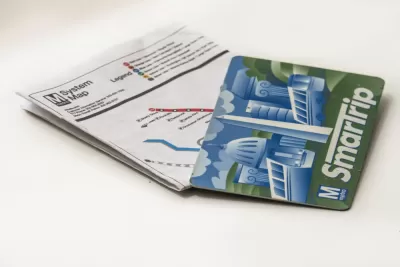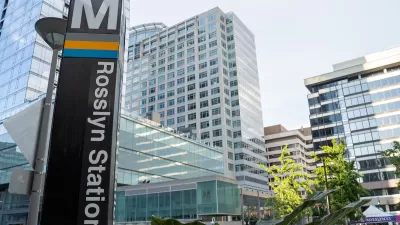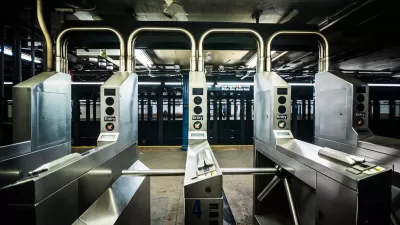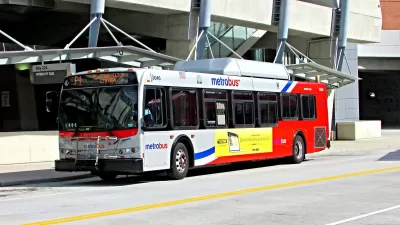Without additional funding, the region’s transit agency could be forced to reverse key changes that have improved service in the past year.

The major improvements experienced by Washington, D.C.-area transit riders could come to and end next year, according to a TransitCenter blog post. “This week, WMATA leaders released an outline of doomsday funding scenarios, which include severe service cuts that could eliminate bus routes, reduce rail hours, create longer waits between trains, and close down stations.”
The blog post outlines some of the most significant improvements in the last year, noting that “Metro will have 58 percent more trains in service on weekdays compared to July 2022 and provide 73 percent more train trips.” The agency also has several other improvements on deck, such as all-door boarding, which begins this fall.
“WMATA is an essential part of the DC region’s economy, and service cuts of this magnitude would be devastating for the mobility of the region,” the post continues. But “As of September, WMATA’s budget gap totals $750 million. If the agency isn’t able to close the gap by next summer, it will lose all of the progress that’s been made and will have to start initiating hiring freezes and layoffs that would dramatically reduce systemwide operating hours and cause increased wait times for passengers.”
FULL STORY: On the Brink: Will WMATA’s Progress Be Erased by 2024?

Alabama: Trump Terminates Settlements for Black Communities Harmed By Raw Sewage
Trump deemed the landmark civil rights agreement “illegal DEI and environmental justice policy.”

Planetizen Federal Action Tracker
A weekly monitor of how Trump’s orders and actions are impacting planners and planning in America.

The 120 Year Old Tiny Home Villages That Sheltered San Francisco’s Earthquake Refugees
More than a century ago, San Francisco mobilized to house thousands of residents displaced by the 1906 earthquake. Could their strategy offer a model for the present?

Ken Jennings Launches Transit Web Series
The Jeopardy champ wants you to ride public transit.

BLM To Rescind Public Lands Rule
The change will downgrade conservation, once again putting federal land at risk for mining and other extractive uses.

Indy Neighborhood Group Builds Temporary Multi-Use Path
Community members, aided in part by funding from the city, repurposed a vehicle lane to create a protected bike and pedestrian path for the summer season.
Urban Design for Planners 1: Software Tools
This six-course series explores essential urban design concepts using open source software and equips planners with the tools they need to participate fully in the urban design process.
Planning for Universal Design
Learn the tools for implementing Universal Design in planning regulations.
Clanton & Associates, Inc.
Jessamine County Fiscal Court
Institute for Housing and Urban Development Studies (IHS)
City of Grandview
Harvard GSD Executive Education
Toledo-Lucas County Plan Commissions
Salt Lake City
NYU Wagner Graduate School of Public Service





























